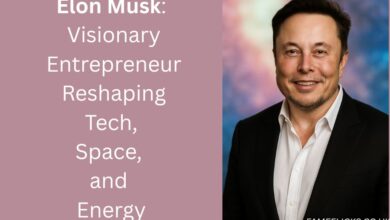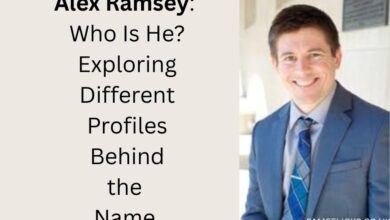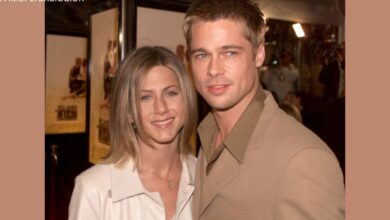Emmanuel Macron: A Detailed Look at the French President’s Life, Career, and Legacy

Emmanuel Macron is one of the most recognizable political leaders of the 21st century, having risen from a relatively obscure background to become the President of France. Known for his centrist ideology, pragmatic approach, and reform-driven policies, Macron has reshaped France’s political landscape in a short period of time. His story is not just about politics—it also includes his unique personal life, educational achievements, professional career, and global influence. This article provides a comprehensive look at Emmanuel Macron, his life before politics, his leadership style, controversies, and the lasting impact he continues to make on both France and the world.
Early Life and Education
Emmanuel Jean-Michel Frédéric Macron was born on December 21, 1977, in Amiens, France. He came from a middle-class family; his father, Jean-Michel Macron, was a professor of neurology, and his mother, Françoise Noguès, was a physician. From an early age, Emmanuel displayed a strong intellectual ability and an interest in literature, history, and philosophy.
He attended the prestigious Lycée La Providence in Amiens, where he excelled in academics and extracurricular activities, particularly drama. Later, he studied at Lycée Henri-IV in Paris, one of the country’s most respected preparatory schools. Macron then attended Sciences Po (Paris Institute of Political Studies) and later enrolled in the highly selective École nationale d’administration (ENA), which has trained many of France’s top civil servants and leaders.
His educational background gave him a strong grounding in political science, economics, and governance, shaping his future political ambitions.
Early Career in Finance and Public Service
Before venturing into politics, Macron built an impressive career in both the public and private sectors. He initially worked as an Inspector of Finances at the French Ministry of Economy and Finance. Later, he joined the prestigious investment bank Rothschild & Cie in 2008, where he quickly rose to prominence.
At Rothschild, Macron played a central role in significant financial deals, including Nestlé’s acquisition of Pfizer’s baby food division. His success in finance not only brought him wealth but also valuable connections within France’s economic and political elite.
Entry into Politics
Macron’s formal political journey began when he joined President François Hollande’s administration in 2012 as the Deputy Secretary-General of the Élysée Palace. In this role, he was involved in economic and financial policymaking.
In 2014, Hollande appointed him as Minister of the Economy, Industry, and Digital Affairs. During his tenure, Macron pushed for pro-business reforms, labor market flexibility, and innovation-friendly policies. The famous “Macron Law” sought to modernize the French economy by liberalizing sectors such as transportation and commerce. Although controversial, it positioned him as a reform-minded leader willing to challenge traditional French economic practices.
Founding La République En Marche!
Disillusioned with traditional parties, Macron founded his own centrist political movement in April 2016, called La République En Marche! (LREM). The movement emphasized progressive values, social liberalism, and a pro-European Union stance. It quickly gained traction among younger voters, professionals, and those dissatisfied with the political establishment.
In less than a year, Macron’s movement disrupted French politics, challenging both the Socialist Party and the Republicans. His campaign centered on modernization, inclusivity, and reform, which resonated strongly with the electorate.
Presidential Victory in 2017
Emmanuel Macron made history in May 2017 when he was elected as the youngest President in French history at the age of 39. Running as a centrist outsider, he defeated Marine Le Pen of the far-right National Front in the second round of voting.
His victory was viewed as a triumph of progressive European values at a time when populism and nationalism were rising in many countries. Macron pledged to reform France’s labor laws, reduce unemployment, strengthen the European Union, and restore France’s global leadership.
Key Policies and Reforms
During his presidency, Macron has implemented several significant reforms, including:
-
Labor Market Reforms – Introducing measures to make hiring and firing easier, aiming to reduce unemployment.
-
Pension Reform – Efforts to streamline France’s complex pension system, though met with widespread protests.
-
Tax Cuts – Implementing business-friendly tax reforms to attract investment.
-
Climate Initiatives – Positioning France as a global leader in fighting climate change, especially after the U.S. withdrawal from the Paris Agreement.
-
European Integration – Advocating for stronger EU cooperation, defense policies, and economic coordination.
Challenges and Protests
Despite his achievements, Macron’s presidency has not been without controversy. His economic reforms have often been criticized as favoring the wealthy, leading to his nickname “the president of the rich.”
The Yellow Vest Movement (Gilets Jaunes) that began in late 2018 marked one of the most significant challenges of his leadership. Sparked by rising fuel prices and perceived inequality, the protests spread across France, demanding economic justice and greater political accountability.
Additionally, his pension reform proposals triggered strikes and widespread opposition from unions. These events tested his resilience and ability to balance reform with social stability.
International Leadership
Macron has also emerged as a key figure on the international stage. He has been a strong advocate for multilateralism, European unity, and global cooperation. Some highlights include:
-
Hosting the Paris Peace Forum to promote international dialogue.
-
Taking a firm stance on climate change.
-
Mediating conflicts in the Middle East and Africa.
-
Positioning France as a strong NATO member while also advocating for European defense autonomy.
His diplomatic efforts have made him one of the most visible European leaders alongside Germany’s Angela Merkel during her tenure.
Emmanuel Macron’s Height and Public Image
Macron’s height has been a subject of curiosity in media and public discussions. Sources vary, but most place him between 5′8″ and 5′10″ (172–178 cm). While such details may seem trivial, they often feature in comparisons with other world leaders.
Beyond his height, Macron’s image is carefully crafted. He is known for his polished style, intellectual speeches, and charisma. These attributes have helped him maintain popularity despite political turbulence.
Emmanuel Macron’s Wife – Brigitte Macron
One of the most remarkable aspects of Emmanuel Macron’s personal life is his marriage to Brigitte Macron (née Trogneux). Brigitte was Emmanuel’s drama teacher during his teenage years, and their relationship attracted significant media attention due to the 25-year age gap between them.
They married in 2007, and Brigitte has been an influential presence in Macron’s life and career. She is often described as his closest advisor, providing emotional support and guidance. Macron himself has stated that he would not be who he is today without her influence.
Brigitte Macron is admired for her elegance and her active role as France’s First Lady, attending official functions, engaging in social causes, and representing France on the world stage.
Legacy and Future Prospects
Emmanuel Macron’s presidency has already left a strong mark on French politics. By breaking the traditional dominance of France’s main political parties, he has demonstrated that centrist movements can thrive in modern democracies.
His focus on economic modernization, European unity, and global diplomacy ensures that he will be remembered as a leader who sought to adapt France to the challenges of the 21st century.
Looking ahead, Macron faces the challenge of balancing reforms with public satisfaction. Whether he secures long-term success will depend on his ability to maintain support among diverse segments of the French population while navigating global uncertainties.
Conclusion
Emmanuel Macron’s journey from a student in Amiens to the Élysée Palace is a story of ambition, intellect, and determination. His rise to power reflects a shift in French politics toward centrist, reform-driven leadership. With his ongoing reforms, international influence, and unique personal life, Macron remains a central figure in both French and global politics.
As his presidency continues to unfold, Emmanuel Macron stands as a leader who combines vision with pragmatism—leaving a legacy that will be studied for generations to come.
And as always, for more in-depth articles on influential personalities and world leaders, keep visiting Flame Flicks.
Thanks for read our article if you want more like this kind of article visit our site Flame Flicks, and comment us. We provide authentic & comprehensivf information to our readers.



